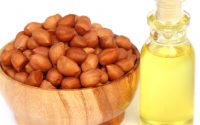What is rice bran oil?
Rice bran oil; also known as rice oil, cereal oil. Rice bran oil is a nutrient-rich edible vegetable oil derived from rice bran, a by-product of rice processing rice. It not only has a complete fatty acid composition, but also contains more vitamin E and oryzanol. It is unmatched by other vegetable oils and has the effect of lowering the body’s serum cholesterol and is an ideal edible oil for patients with hypertension.
The fatty acid composition of rice bran oil is relatively complete and reasonable, because the proportion of essential fatty acids oleic acid and linoleic acid in vegetable oil is similar in rice bran oil, 40-50% and 29-42%, respectively. The fatty acid structure at 1:1 is unmatched by any edible vegetable oil. In addition, rice bran oil has two major advantages that are well-known, one is good oxidative stability, and the other is to significantly reduce the body’s serum cholesterol.
First, the oxidative stability of rice bran oil. After the edible fats and oils have been left for a long time, there will be a halo smell, which is called rancidity. Acid rancidity is the combined result of auto-oxidation and hydrolysis. Japanese oil chemists have done a comparative test on the oxidative stability of butter, soybean oil, rapeseed oil and cottonseed oil: after 150 days of storage of buttercup oil, the peroxide value is only 69.5; while soybean oil is stored for 60 days, the peroxide value rises. To 593.9; cottonseed oil storage for 130 days, the peroxide value increased to 287.4; rapeseed oil storage for 120 days, the peroxide value rose to 116.0; it can be seen that rice bran oil has the best oxidation stability. There are three reasons for this: 1. The linolenic acid in rice bran oil is very low, the content is less than 1%, lower than rapeseed oil and soybean oil. Methyl linolenic acid
The rate of oxygen in the air is very fast, and if there is too much linolenic acid in the oil, the oil is particularly unstable and easily rancid. 2. The vitamin content in rice bran oil is higher. Vitamin E, a tocopherol, is widely found in higher animals and plants and has natural antioxidant capacity. 3. Rice bran oil is rich in oryzanol. Rice bran oil contains oryzanol 2-2.5%. The presence of oryzanol is beneficial to the thermal stability of the oil, and the higher the content, the better the thermal stability.
Second, rice bran oil can significantly reduce human serum cholesterol. Rice bran oil can reduce the body’s serum cholesterol, which can prevent arteriosclerosis. Compared with other vegetable oils, rice bran oil has the greatest effect on lowering serum cholesterol. In particular, the blending oil formulated with 70% rice bran oil and 30% safflower oil is more effective, and the Japanese call it “healthy oil”. Japanese scholars used a group of healthy women aged 19-21 as subjects. Each person consumed 60 grams of cooking oil per day and 7 days of eating. After the expiration, the serum cholesterol levels of each person were measured. The experimental data are as follows:
Edible oil varieties Cholesterol increase and decrease changes Edible oil varieties Cholesterol increase and decrease changes Rice bran blend oil -26% Peanut oil-1% Rice bran oil-17% Soybean oil-1% Corn germ oil-17% Rapeseed oil ±0 Sunflower oil-16% Cottonseed oil ±0 wheat germ oil-16% tea oil+1% safflower seed oil-13% lard+18% sesame oil-2% natural cheese oil +36%
(Note: rice bran blending oil is a mixture of 70% rice bran oil and 30% safflower seed oil)
China is a big agricultural producer, and rice production ranks first in the world. According to relevant statistics, the degree of external dependence of edible vegetable oil in China was still as high as 60% in 2007, up 5 percentage points year-on-year. To this end, make full use of China’s rice resources, do a good job in the processing and comprehensive utilization of agricultural and sideline products, promote and develop the production and processing of rice bran oil, ease the tension of edible vegetable oil in China, increase the economic value of agricultural products, increase the income of farmers, and form a good agricultural economy. The industrial chain is undoubtedly a good thing for the benefit of the country and the people.



